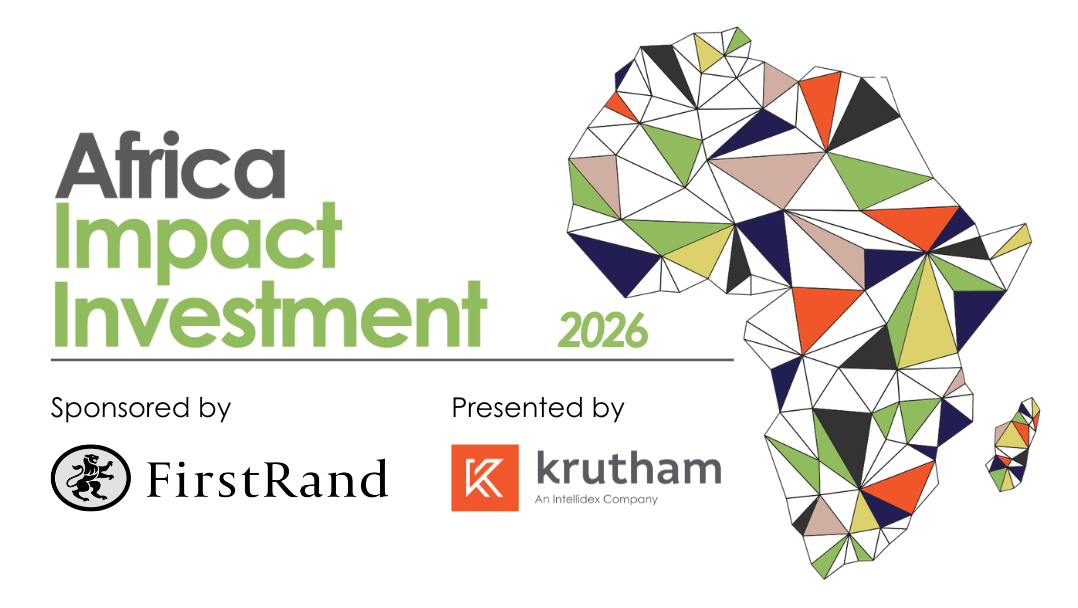AfriFORTIFIED
Overview
AfriFORTIFIED is a Kenyan food innovation hub that helps small food businesses grow by offering support to develop new products and funding to create prototypes. Its model offers early-stage funding for ingredient sourcing and product testing, enabling entrepreneurs to refine their products through multiple iterations until they achieve standardisation at the Kenya Industrial Research and Development Institute and regulatory certification from the Kenya Bureau of Standards. By de-risking the initial R&D phase which is often overlooked by commercial investors, AfriFORTIFIED helps food SMEs overcome barriers to formal market entry. This also improves investor readiness and eventual commercialisation prospects.
Alongside prototype financing, AfriFORTIFIED offers expert support from food scientists to guide formulation, standardisation, market research and go-to-market strategy, ensuring that promising food innovations reach the market and contribute to Kenya’s food security and economic growth.
The problem
Kenya is facing a food security crisis, with over 2.2m people experiencing acute shortages due to climate shocks, underperforming food systems and economic hardship. Supporting SMEs in the agri-food sector is critical to address this challenge and also for job creation and economic growth,
as these enterprises can drive innovation and improve food access while contributing to economic growth.
Agri-food SMEs face significant challenges in accessing funding, primarily because they are often perceived as high-risk ventures by potential investors and financial institutions. As a result, new food product ideas do not get developed because investors do not want to fund research and development. Many of these SMEs lack the necessary collateral to secure loans and frequently fall short of regulatory compliance requirements, which further limits their eligibility for formal financing from banks and other financial institutions.
The solution
AfriFORTIFIED addresses the funding challenges faced by agri-food SMEs by offering patient
and flexible financing solutions tailored to their individual needs. Through its prototype financing model, AfriFUND acts as a de-risking mechanism by taking on the initial and most significant investment risks. This support covers critical stages such as product development, acquiring regulatory and compliance certifications and iterating for product-market fit. This financing model is bundled with technical assistance, giving entrepreneurs access to food scientists who help with
product formulation, standardisation, market research and commercialisation strategies. By combining research and development investment with expert guidance, the firm bridges the investment gap and enables SMEs to create commercially viable food products for both local and international markets.
Delivering impact
AfriFORTIFIED recognises that Kenya produces a variety of nutrient-dense agricultural products and as the world looks for alternative proteins and micronutrients to create fortified foods that address food security and micronutrient deficiencies. To achieve this, it set up a prototyping and financing system that helps deliver standardised and certified healthy and nutritious food products. This supports healthier diets, especially for the most vulnerable and promotes more sustainable
and fair and inclusive food systems.
Its food products increase the availability, affordability and sustainability of nutritious and safe foods, reducing the consumption of unhealthy and unsafe foods. To date, AfriOFORTIFIED has invested in 44 food entrepreneurs, leading to the development and mainstreaming of 75 food products in formal markets. This success shows the effectiveness of a blended investment model that combines financial support with technical assistance to build inclusive food systems across Africa. By de-risking SMEs through prototype financing, the firm has helped make these businesses investor-ready, facilitated their entry into formal markets and catalysed their growth through access into the market. This approach has also generated 117 gender-inclusive jobs and supported 11 women-led farmer groups, further advancing inclusive economic development in the region.
To measure and maximise its impact, the firm has established a dedicated monitoring, evaluation and learnintg team which is responsible for tracking key indicators which go beyond traditional impact metrics to focus on industry and programme-specific outcomes.
Mitigating risks
Prototype financing is intentionally designed to manage the high risk of early-stage innovation by investing small, flexible amounts in promising ideas before they are commercially viable. Rather than backing fully developed products, this model supports entrepreneurs through the critical early phases of product development – enabling them to prototype, test and refine their concepts based on real-world feedback. What sets this approach apart is that financing is paired with technical assistance, helping entrepreneurs navigate product design, consumer preferences and regulatory requirements. This combination significantly lowers the risk of failure by strengthening both the business model and the product itself before larger capital is committed. It also increases the likelihood that products are market-ready and scalable.
By focusing on iterative learning and de-risking at an early stage, this model not only improves the success rate of individual ventures but also strengthens the overall innovation pipeline – ensuring that more viable, high-impact agri-food solutions reach both local and global markets.
Catalysing capital
AfriFORTIFIED’s collaboration with the Kenya Industrial Research and Development Institute (KIRDI) enabled the organisation to secure prototype development funding from Unilever for new food products derived from the millet value chain. As a result, two award-winning products, Millet Cookies and Millet Bars, were successfully standardised and certified by the Kenya Bureau of Standards. The associated beneficiaries have since leveraged the technical and financial support received from AfriFORTIFIED to access additional commercial financing, facilitating the expansion and scaling of their operations. To date, three food SMEs from their first cohort have each secured $100,000 in investments from Christian Business Angels. This initiative has enabled them to transform their ideas into commercially viable food products, initially developed at AfriFORTIFIED.
Scaling up
AfriFORTIFIED has successfully validated its financing model and demonstrated strong market demand. It is now working to raise capital to establish a fully-fledged fund that can support the development and commercialisation of innovative food products across Africa. AfriFORTIFIED plans to expand by establishing dedicated funds in Nairobi, Kampala and Dar es Salaam over the next 12 months. Its goal is to support and scale at least 300 food SMEs, helping them to standardise
and certify 900 distinctive food products for local, regional and global markets.
A learning journey
Since its founding in October 2023, AfriFORTIFIED has approached its mission as a dynamic learning journey – one rooted in adapting to real-world challenges and refining its model through close collaboration with partners and stakeholders. From the outset, the team recognised that the core challenge for many agri-food SMEs is not a lack of innovation, but the inability to bring market ready products to scale due to limited access to appropriate financing, technical support and systemic bottlenecks. This insight shaped an adaptive approach that combines tailored technical assistance with a blended finance model focused on prototyping, investor readiness and inclusive growth through gender equity and green jobs. Piloting also proved an invaluable tool to inform approaches over time and partnerships have been central to AfriFORTIFIED’s evolution. Through its iterative process, AfriFORTIFIED continues to evolve – using what it learns to fine-tune its support model and deepen its impact, all while working alongside a growing network of partners committed to transforming food systems across East Africa.
Share
This research report was issued by Krutham South Africa Pty Ltd.
Krutham aims to deliver impartial and objective assessments of securities, companies or other subjects. This document is issued for information purposes only and is not an offer to purchase or sell investments or related financial instruments. Individuals should undertake their own analysis and/or seek professional advice based on their specific needs before purchasing or selling investments.
The information contained in this report is based on sources that Krutham believes to be reliable, but Krutham makes no representations or warranties regarding the completeness, accuracy or reliability of any information, facts, estimates, forecasts or opinions contained in this document. The information and opinions could change at any time without prior notice. Krutham is under no obligation to inform any recipient of this document of any such changes.
No part of this report should be considered as a credit rating or ratings product, nor as ratings advice.
Krutham does not provide ratings on any sovereign or corporate entity for any client.
Krutham, its directors, officers, staff, agents or associates shall have no liability for any loss or damage of any nature arising from the use of this document.
Disclosure
The opinions or recommendations contained in this report represent the true views of the analyst(s) responsible for preparing the report. The analyst’s remuneration is not affected by the opinions or recommendations contained in this report, although his/her remuneration may be affected by the overall quality of their research, feedback from clients and the financial performance of Krutham group entities.
Krutham staff may hold positions in financial instruments or derivatives thereof which are discussed in this document. Trades by staff are subject to Krutham’s code of conduct which can be obtained by emailing mail@krutham.com.
Krutham may have, or be seeking to have, a consulting or other professional relationship with the companies, sovereigns or individuals mentioned in this report. A copy of Krutham’s conflicts of interest policy is available on request by emailing mail@krutham.com. Relevant specific conflicts of interest will be listed here if they exist.
- Krutham provides independent advice and independent research to a wide range of investors and financial institutions on Eskom, Denel, Transnet, Land Bank and SAA. Krutham’s interactions with all clients on Eskom, Denel, Transnet, Land Bank and SAA may include business confidential information but does not include MNPI and so does not provide a conflict. Krutham does not ‘act’ or ‘advocate’ for or ‘represent’ any of these clients. Krutham has regular interactions with government, Eskom, Denel, Transnet, Land Bank, SAA and other related entities connected with the SOE situation but does not provide paid consulting services or paid advice to any of these entities. These interactions are governed by Krutham’s own conflicts of interest policy as well as secrecy rules of the respective institutions or state-owned companies.
- Krutham provides a range of services into ‘organised business’ groupings in South Africa, which includes independent bespoke research and advice. Krutham is compensated for these services. Krutham does not ‘act for’ or ‘advocate’ for or ‘represent’ any of these clients.
- Krutham is currently involved in policy design work on a number of government priorities.
Copyright © 2023. All rights reserved. This document is copyrighted to Krutham South Africa Pty Ltd.
This report is only intended for the direct recipient of this report from a Krutham group company employee and may not be distributed in any form without prior permission. Prior written permission must be obtained before using the content of this report in other forms including for media, commercial or non-commercial benefit.

